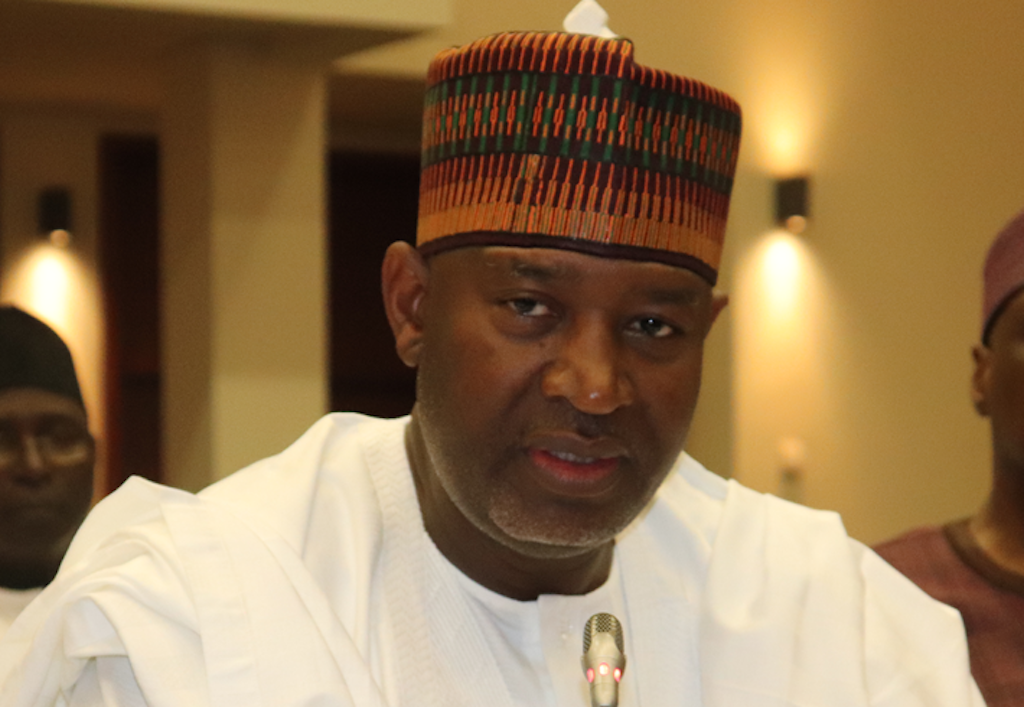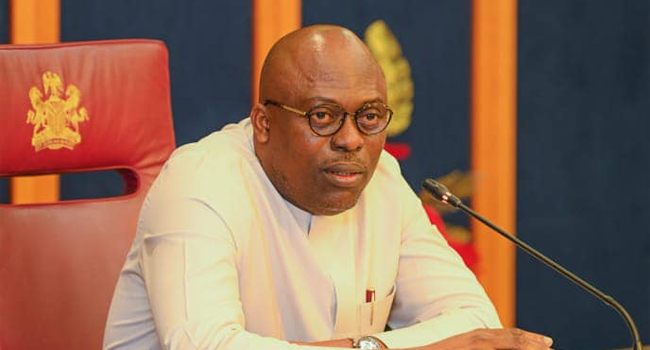The Rivers State Government on Tuesday dismissed a call on the state House of Assembly by the Caretaker Committee of the All Progressives Congress in the state to commence impeachment proceedings against Governor Siminlayi Fubara.
The state Commissioner for Information and Communications, Joseph Johnson, told The PUNCH during an interview in Port Harcourt, that the governor would not allow anybody to throw the state into anarchy.
Fubara, on Monday, dismissed the Assembly as an illegal body that did not exist while receiving delegation from Bayelsa State on a peace mission, led by the immediate past governor, Senator Seriake Dickson. This was just after the Assembly passed a bill into without his assent.
Also, the governor insisted that the eight-point peace agreement brokered by President Bola Tinubu was a mere political solution to a problem and not a constitutional issue.
The APC Caretaker Committee Chairman in the state, Chief Tony Okocha, in his reaction on Tuesday, called on the 27 members of the state House of Assembly loyal to the Minister of the Federal Capital Territory, Nyesom Wike, to immediately commence an impeachment process against Fubara.
Okocha said the governor did not have the powers to declare the lawmakers as illegal.
He also wondered when the governor realised that the peace deal which he signed before Tinubu in Abuja was unconstitutional.
He added that aside from refusing to implement all the agreements, he had been making scathing remarks on the President’s genuine intervention to resolve the crisis that rocked the state.
But in a swift reaction, the state Commissioner for Information and Communications, Joseph Johnson, said the position of the governor had not changed.
He stated, “By jurisprudence, the 27 lawmakers lost their seats on the day they defected to another party. That is what the law says.
“The Constitution of the Federal Republic of Nigeria, Section 109, 1g clearly states it. It is incontrovertible. So for anybody to think that they can start a process, the law says they cannot put something on nothing.
“There is nothing at all to even put on something. The House of Assembly does not exist. They are non-existent. The governor said yesterday that they did not exist. Out of his magnanimity, he allowed them, giving them a floater to see if they could come to reality. “But it does appear that they don’t understand what was done for them. So if they want to start an impeachment process, they do not have the legal teeth to even do it. They can only bark, but they can’t bite.”
Also, the leader of the Pan Niger Delta Forum, Chief Edwin Clark and other prominent individuals in the region warned the lawmakers against causing anarchy in the state.

 News6 years ago
News6 years ago
 Featured6 years ago
Featured6 years ago
 Boss Picks6 years ago
Boss Picks6 years ago
 Headline6 years ago
Headline6 years ago
 Headline6 years ago
Headline6 years ago
 Headline6 years ago
Headline6 years ago
 Headline6 years ago
Headline6 years ago
 Headline6 years ago
Headline6 years ago













